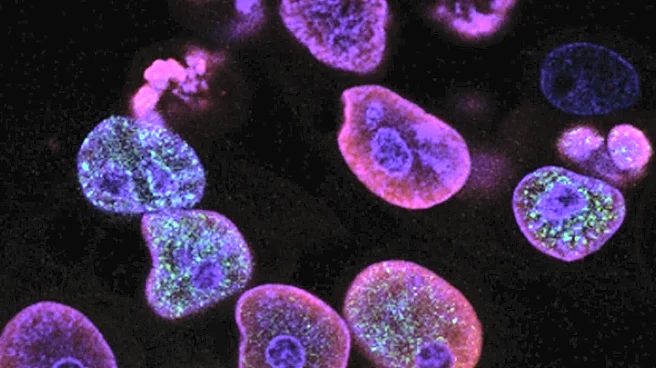What's Happening?
Researchers at MIT have discovered that the amino acid cysteine can significantly aid the regeneration of the small intestine. The study, conducted on mice, found that cysteine activates an immune signaling process that encourages stem cells to grow new
intestinal tissue. This discovery could potentially help mitigate damage caused by radiation, a common side effect of cancer treatments. The research, led by Omer Yilmaz, suggests that a cysteine-rich diet or supplementation might offer a new way to help the intestine recover faster after injury. The study is the first to pinpoint a single nutrient that directly boosts the gut's regenerative capacity, and it was published in Nature.
Why It's Important?
The findings from MIT could have significant implications for cancer patients undergoing radiation therapy, as cysteine could help reduce intestinal damage and improve recovery times. This research highlights the potential of dietary interventions in enhancing stem cell function and tissue regeneration, offering a natural alternative to synthetic treatments. If similar results are observed in humans, this could lead to new dietary guidelines or supplement recommendations for patients undergoing chemotherapy or radiation therapy, potentially improving their quality of life and treatment outcomes.
What's Next?
Further research is needed to determine if the effects of cysteine observed in mice can be replicated in humans. If successful, this could lead to clinical trials and eventually new dietary recommendations for cancer patients. Researchers are also exploring whether cysteine can stimulate regeneration in other tissues, such as hair follicles, which could open new avenues for regenerative medicine.
Beyond the Headlines
This study underscores the importance of understanding how individual nutrients impact stem cell fate decisions and overall tissue health. It also highlights the potential for dietary compounds to play a role in medical treatments, shifting focus from synthetic drugs to natural dietary interventions.















